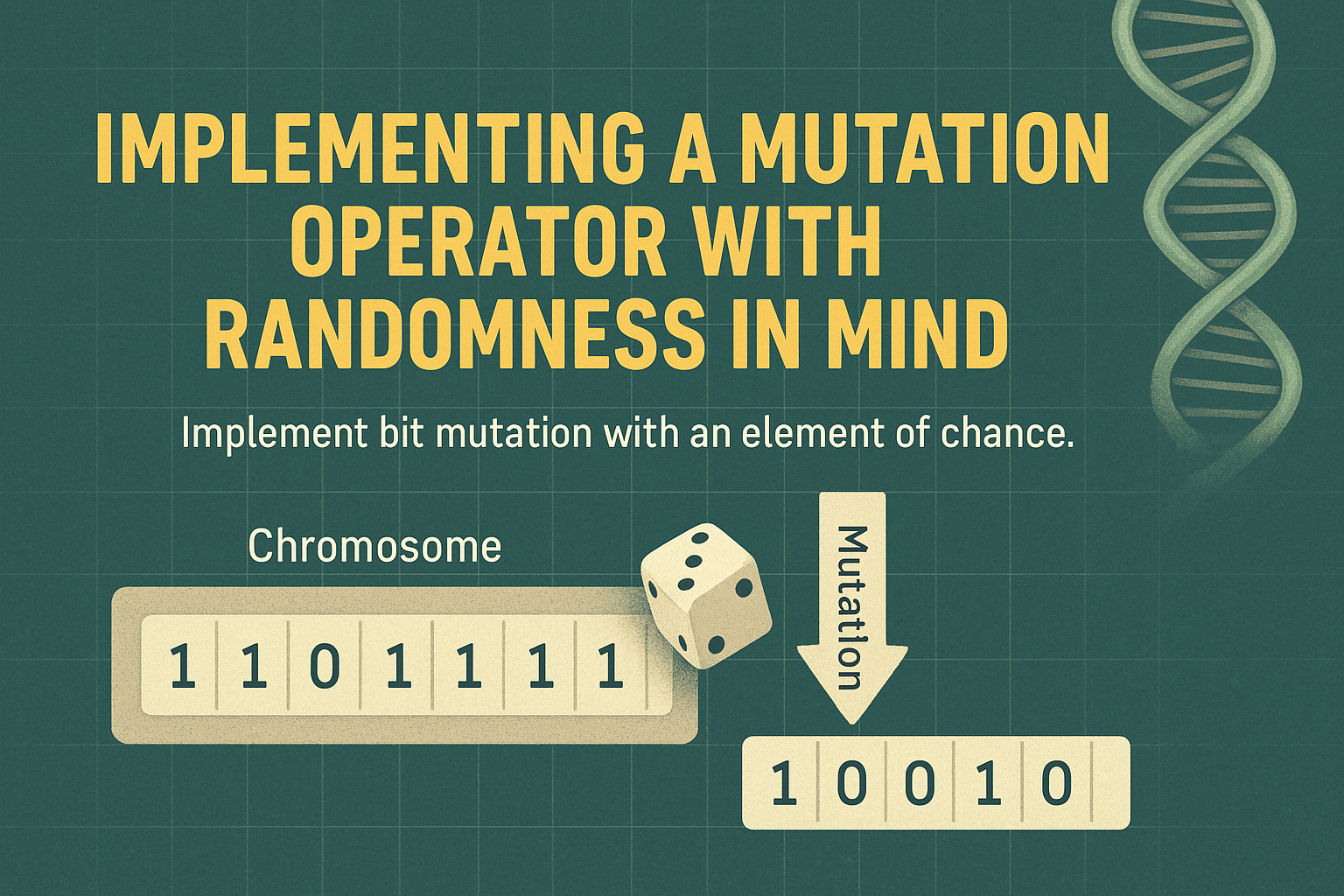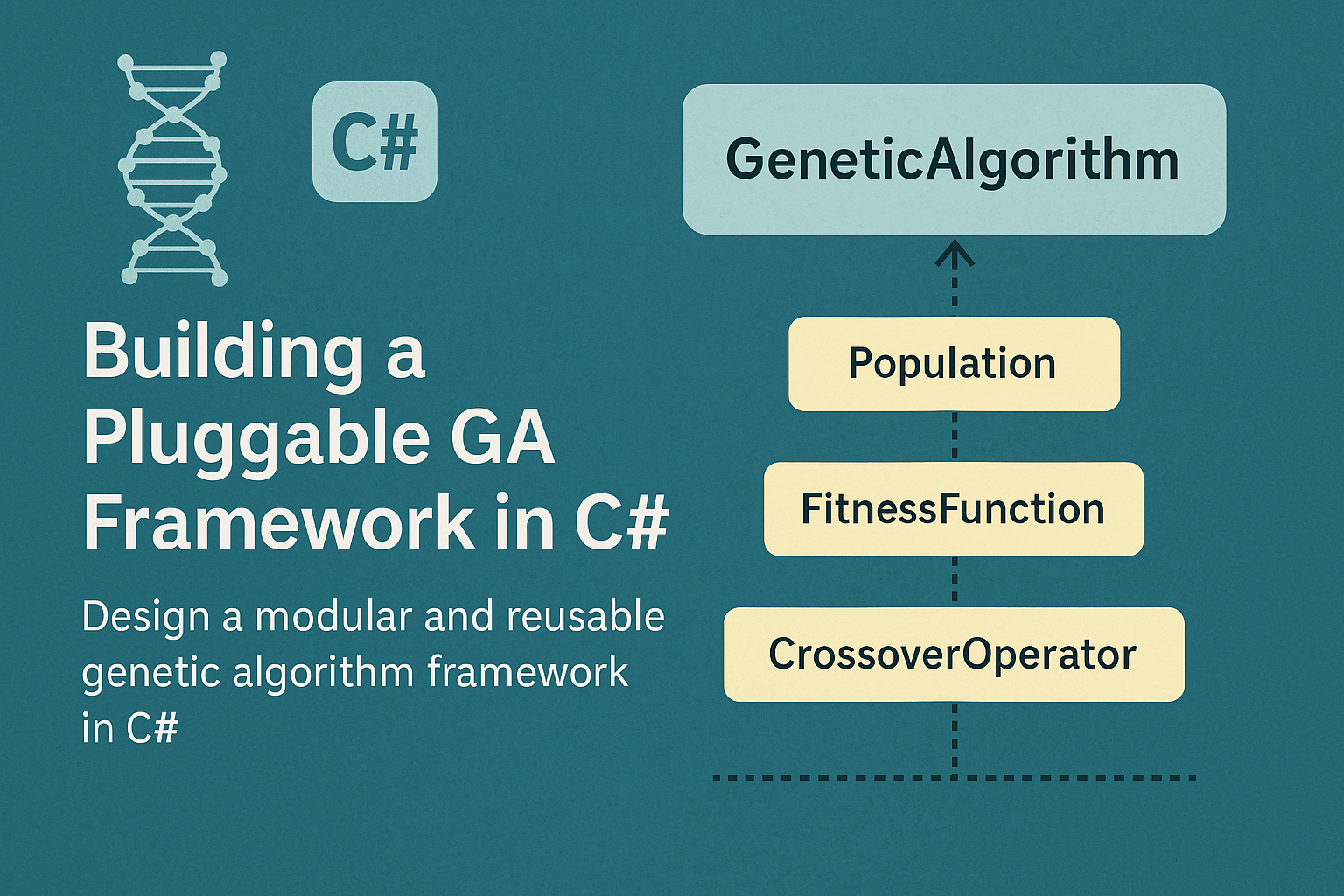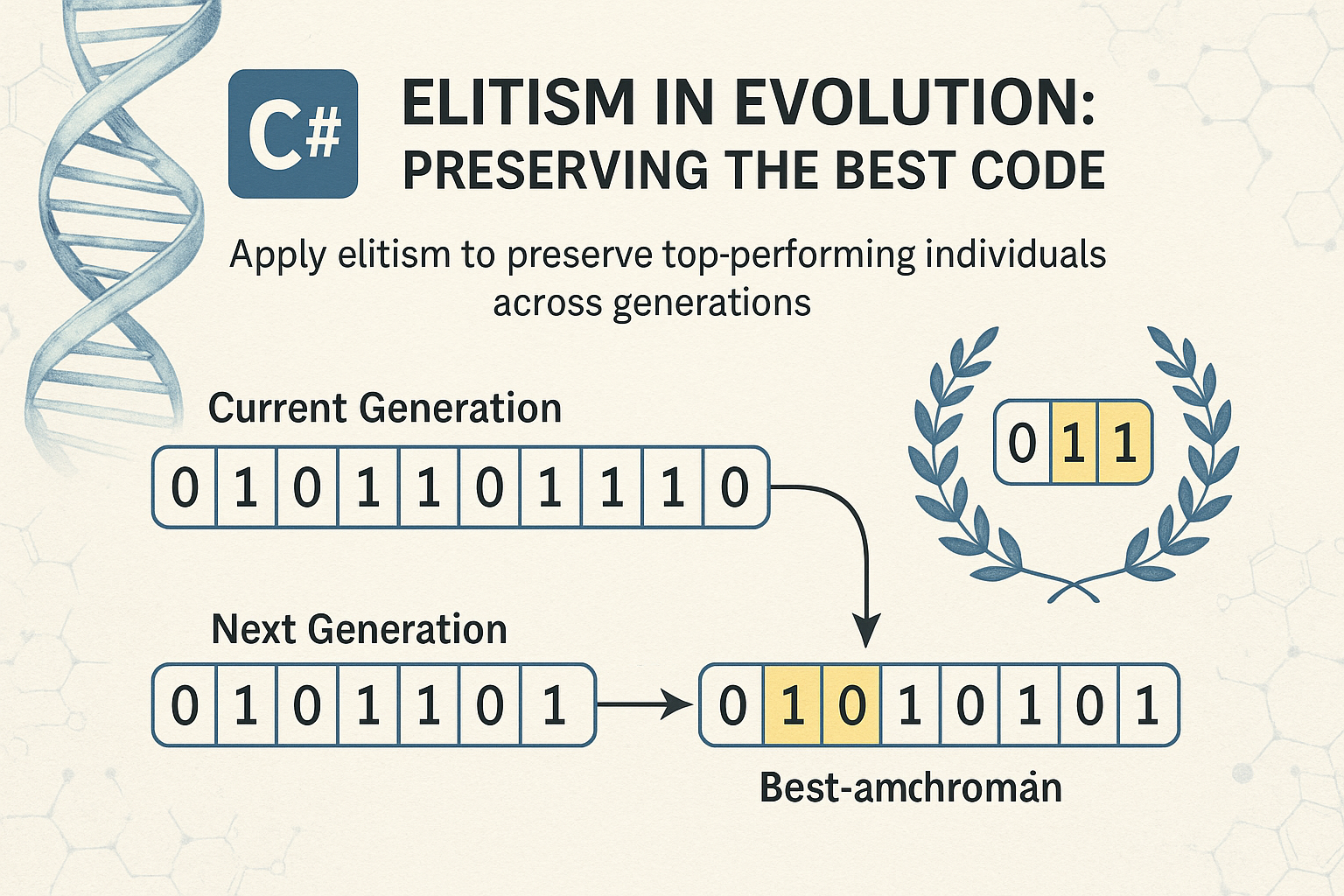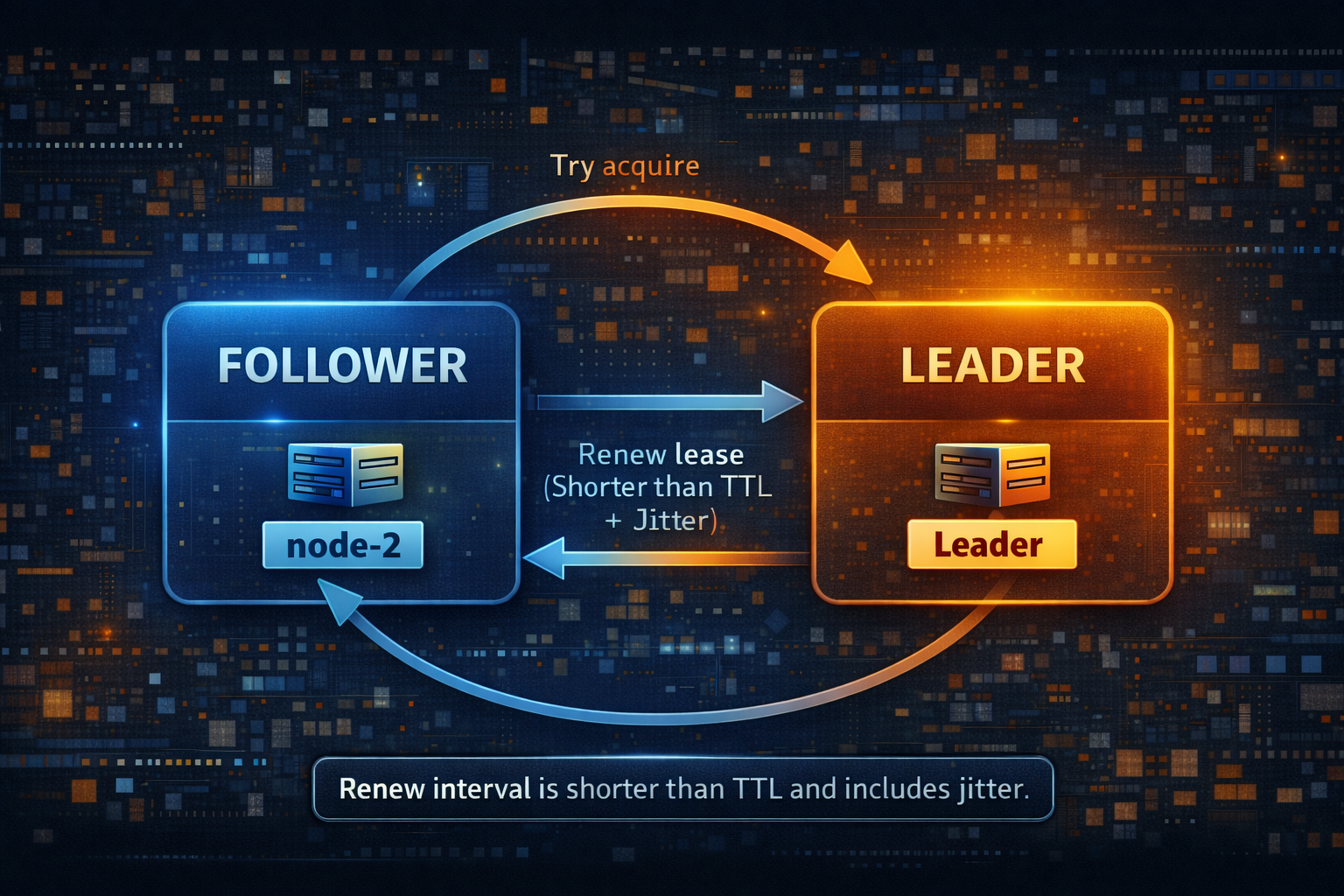
Day 11: Implementing a C# Mutation Operator for Genetic Algorithms
- Chris Woodruff
- June 23, 2025
- Genetic Algorithms
- .NET, ai, C#, dotnet, genetic algorithms, programming
- 0 Comments
In yesterday’s post, we explored the importance of mutation in genetic algorithms. Mutation helps maintain genetic diversity, prevent premature convergence, and enable the discovery of better solutions through small, random changes. Today, we shift from theory to implementation.
Our goal is to code a mutation operator in C# that is both configurable and adaptable to different types of chromosomes. This operator will be a core component of your genetic algorithm loop, introducing the right level of randomness into your evolutionary process.
Mutation Revisited
A mutation is applied to each gene in a chromosome with a small probability, called the mutation rate. For character-based chromosomes, this means replacing a character with another from the gene pool. For numeric or binary chromosomes, the operation might involve flipping a bit or adjusting a value.
The implementation should allow flexibility so you can control how aggressive or conservative the mutation is.
Base Mutation Operator for Character Chromosomes
Let’s define a mutation operator for a chromosome where each gene is a character. Assume we already have a Chromosome class with a Genes array and a method for generating a random gene.
Full C# Implementation
public class Chromosome
{
public char[] Genes { get; private set; }
private static readonly string GenePool = "ABCDEFGHIJKLMNOPQRSTUVWXYZabcdefghijklmnopqrstuvwxyz ,.!";
private static readonly Random Random = new();
public Chromosome(int length)
{
Genes = new char[length];
for (int i = 0; i < length; i++)
{
Genes[i] = RandomGene();
}
}
public Chromosome(char[] genes)
{
Genes = genes;
}
private static char RandomGene()
{
return GenePool[Random.Next(GenePool.Length)];
}
public void Mutate(double mutationRate)
{
for (int i = 0; i < Genes.Length; i++)
{
if (Random.NextDouble() < mutationRate)
{
Genes[i] = RandomGene();
}
}
}
public override string ToString()
{
return new string(Genes);
}
}
This method walks through each gene and mutates it with a probability of mutationRate.
Enhancing the Operator with Customization
You may want to vary the mutation strategy based on the problem domain. For example:
1. Fixed-point Mutation
Target a specific number of mutations per chromosome, regardless of length.
public void FixedMutation(int mutationCount)
{
for (int i = 0; i < mutationCount; i++)
{
int index = Random.Next(Genes.Length);
Genes[index] = RandomGene();
}
}
2. Adaptive Mutation
Modify the mutation rate based on the population’s diversity or the progress over time.
This approach often requires tracking population statistics externally; however, the mutation method can accommodate a dynamic rate.
Logging Mutations for Debugging
Add optional logging to monitor mutation frequency during execution:
public void MutateWithLogging(double mutationRate)
{
for (int i = 0; i < Genes.Length; i++)
{
if (Random.NextDouble() < mutationRate)
{
char oldGene = Genes[i];
Genes[i] = RandomGene();
Console.WriteLine($"Gene at index {i} mutated from '{oldGene}' to '{Genes[i]}'");
}
}
}
This can help you diagnose if mutation is too rare or too aggressive.
Mutation as a Reusable Strategy
For maintainability, consider defining a delegate-based mutation strategy:
public delegate void MutationStrategy(Chromosome chromosome);
public static void ApplyMutation(Chromosome chromosome, MutationStrategy strategy)
{
strategy(chromosome);
}
This allows you to inject different mutation strategies during runtime without modifying your genetic algorithm (GA) loop.
Final Thoughts
The mutation operator may seem small, but it plays a significant role in shaping the long-term dynamics of your genetic algorithm. The right mutation strategy can make the difference between fast convergence and evolutionary stagnation.
Make mutation adjustable, test it under different rates, and use it strategically in combination with selection and crossover.
Up Next
In the next post, we’ll focus on elitism, a mechanism for preserving top-performing chromosomes across generations to accelerate convergence without sacrificing genetic diversity.
Even the best genes need protection. Elitism ensures they survive.






